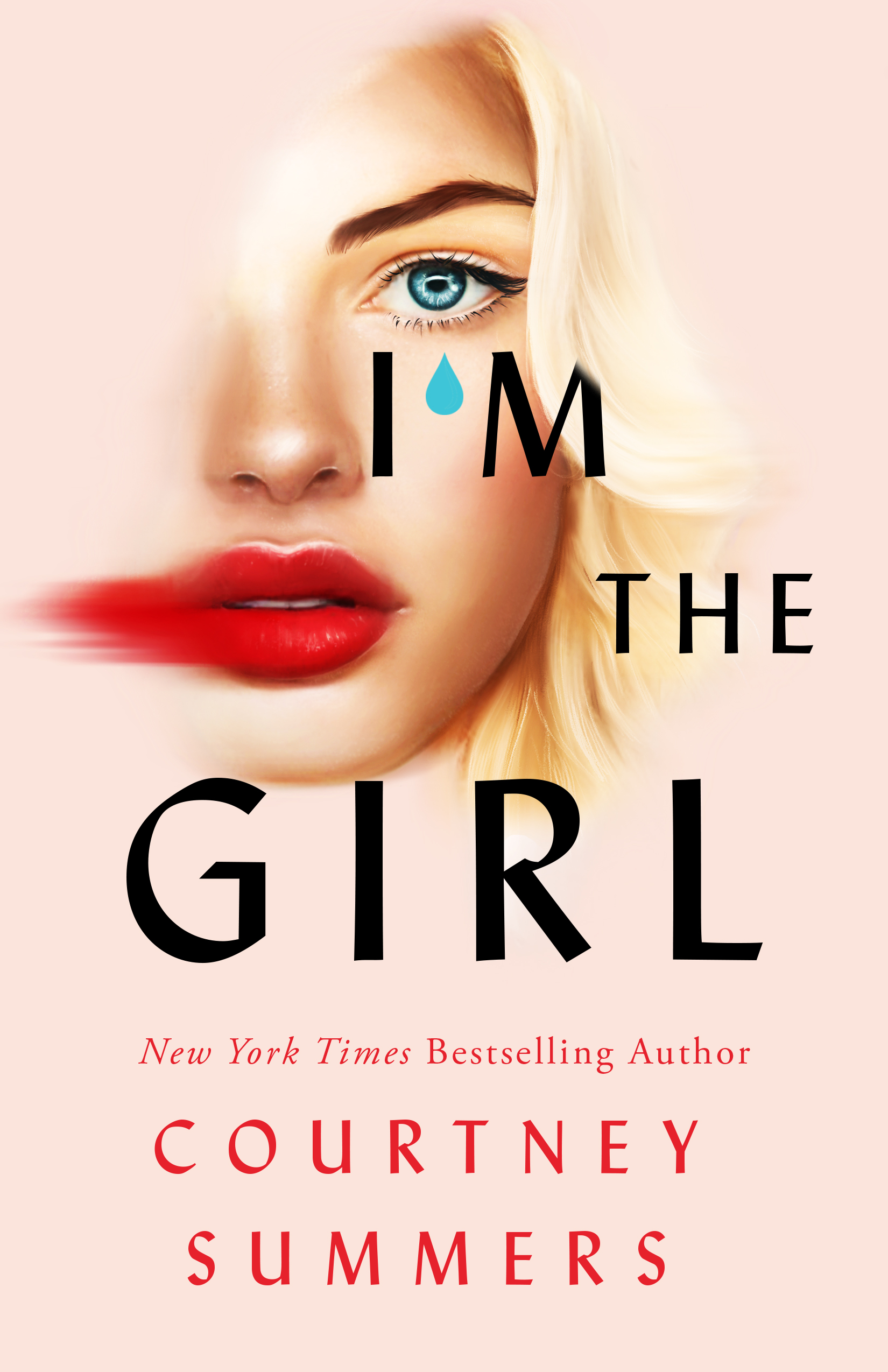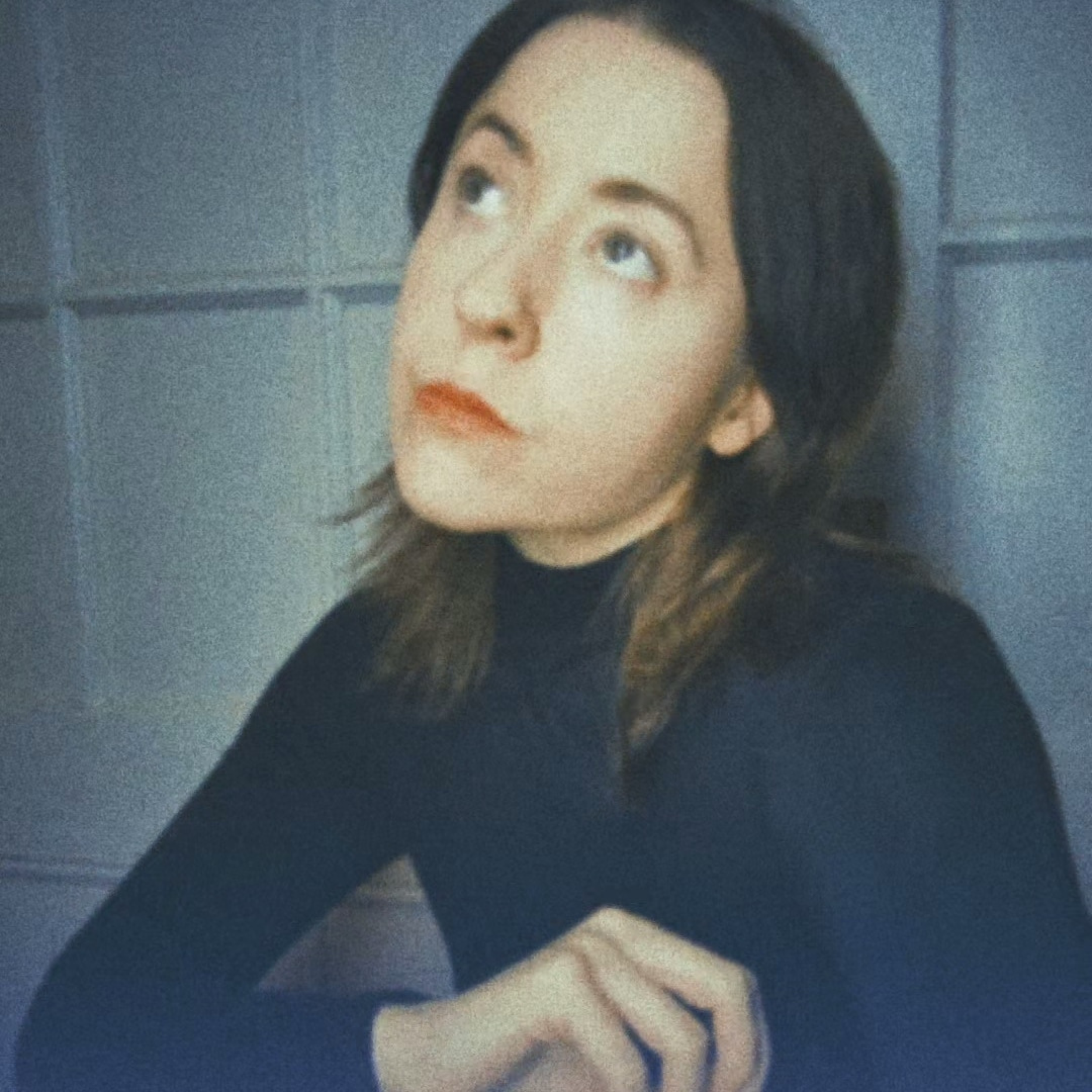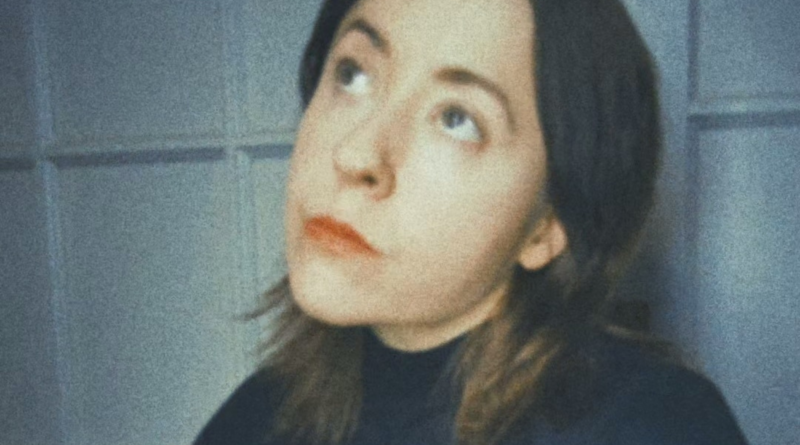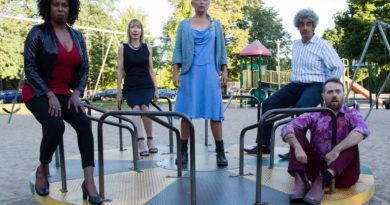Courtney Summers, author of I’M THE GIRL, in conversation with SesayArts
Maybe it’s better to be a little naive about Courtney Summers before interviewing her.
This is especially true when the interviewer’s child – my son – is a YA novel aficionado who rhymes off New York Times bestselling authors like hit songs. Most avid readers know Summers’ name, of course. After she had already been an acclaimed author for a decade, her sixth novel Sadie was a breakout hit and NYT bestseller. I’m the Girl, her ninth and current novel released this fall, is enjoying a similar popularity.

When my son found out that I would be moderating some panels at the Toronto International Festival of Authors, he was impressed. When he found out that one panel of those panels would consist of Summers and fellow bestselling YA author Louisa Onomé, he was gobsmacked. “Are you actually interviewing Courtney Summers?” he asked. “She wrote Sadie. It was on the New York Times Bestseller list. She’s a big deal.” After a pause, a flicker of recognition: “I guess that means you’re kind of a big deal.”
Parental greatness – by association – in the eyes of my teenage son? No pressure!
Unfortunately, shortly before the TIFA event, COVID-19 made its too-familiar presence known. Summers’ positive diagnosis just days before TIFA clearly stung her. She is scrupulous about masking, so naturally, this was a major disappointment. Even more, it was a challenge to her strong work ethic and sense of commitment. And even though this bout of COVID was severe, she wanted to make up for her physical absence and the impossibility of being Zoomed in. So the day of the event, she forwarded a video to be played. She also replied to a number of my written questions over email – with the goal that her answers could be read at the event.
Her absence ended up taking this interview in an unexpectedly personal and nerve-quelling direction. While indeed she is a “big deal”, Summers is also hard-working, generous, warm and empathetic. There’s no ego here, and she seems eminently worthy of her readers’ admiration, respect and enthusiasm for her novels.
Those novels have been described as “gritty”, “unflinching” and “devastating”. She has been lauded for her realistic heroines: for being “uncompromising” and “a master of the bitch”. Among her honours are repeated starred reviews on Kirkus, School Library Journal and Publishers Weekly (to name a few). What makes Summers especially compelling is her drive to write in order to counter injustice – and the meticulous research she conducts and leverages in service of that aim. The result is an oeuvre of gripping stories ripped from the headlines which explore themes of hatred toward, violence against, and power over young women.
Although Summers describes her protagonists as unlikeable, they are also relatable young women in search of agency in a world that devalues them. The multi-award-winning Sadie examines rape culture. The Project offers a fascinating look at cults with their lure of connection and belonging. And I’m the Girl, a queer thriller loosely inspired by the Jeffrey Epstein case, explores grooming, violence and false empowerment from the perspective of 16 year-old Georgia Avis. It poses the important question, “What does it really mean to be the patriarchy’s dream?”

While on the mend from COVID-19, Summers chatted with me about I’m the Girl, the process of developing her protagonist Georgia, and recent reads that she recommends.
SM: I’m the Girl is a gritty pageturner and not for the faint of heart. What was it like for you to write about Georgia Avis, a young girl whose coming of age is marked by abuse and trauma?
CS: Georgia is a beautifully naive sixteen-year-old who doesn’t want to believe she could be a victim of the worst the world has to offer, and she’s groomed into believing her abuse is empowerment. I’m deeply committed to taking the voices of young women seriously and creating a space for them to feel heard and seen, and to do that, I have to give the female characters in my books full authority over their experiences. I’m not here to posture or moralize for my ego’s sake or the audience’s comfort because that would come at the expense of the girls these books are about and who they’re for. Georgia’s perception of what she’s going through was very challenging and heartbreaking to write, but it was ultimately very necessary.
SM: This novel is a compelling exploration of how the social context of beauty is used to commodify and exploit women, and what happens to young women as a result. It’s a reminder (if we ever needed one) of how vulnerable women continue to be, especially when beauty is regarded as the most lucrative and defining characteristic they can have. Do you want to talk a little about the comment I’m the Girl is making on social perceptions of beauty and how they impact women?
CS: I’m the Girl primarily explores how the patriarchy impacts the way young women move through the world and how they feel about their bodies. Georgia is told repeatedly she’s the patriarchy’s dream, and that her beauty gives her power over powerful men, but she’s actually being groomed by them. I want readers to think about the ideals of a violent, oppressive power structure, who it leaves behind, and how being rewarded by those systems is not the same as having power over them. I want them to think about how the commodification of women’s bodies often comes at the expense of their humanity. This is a book about what little value we place on women’s lives and the patriarchal institutions we’re happy to build upon their bodies, and how increasingly urgent it has become to interrogate and reject a world that wants us to accept that.
SM: I read in an interview you gave how hard it was for you to write the novel…you lost sleep, experienced panic attacks and developed vertigo. Was it all painful or were there characters in the novel that were easier to develop?
CS: It was pretty painful to write, from start to finish, but there was a real joy in developing the romantic relationship between Georgia and Nora. That was a space in which Georgia felt seen and valued, and was able to explore her sexuality in a safe, healthy, and loving environment. It offered a very important juxtaposition to the novel’s darker moments and they were very much a reprieve for me from them as well.
SM: I’m the Girl is profoundly affecting (sleep stealing, to say the least). As a reader, it’s really difficult to realize before Georgia does that the world she believes in is setting her up to destroy her. What was your inspiration for creating Georgia, and what went into the development of her character?
CS: Thank you so much. We live in a patriarchal society that is determined to maintain its hold at the expense of anyone or anything, and in the case of I’m the Girl, that’s reflected in its treatment of the main character, Georgia, which is a commentary on how young girls are treated by it as a whole. Culturally, we’re conditioned to put the behavior of victims of sexual abuse and violence on trial over the actions and crimes of their abusers, and this is in service of protecting these harmful and oppressive institutions. Georgia is designed to push against that conditioning by asking readers to think critically about how much of it informs their responses to her and her actions throughout the book. She’s not at fault here, at all. She’s been groomed. I’ve often said that I’m the Girl is a story where there is nothing to lose by believing in and empathizing with one young woman. That choice is ultimately up to the reader, and I’m always interested in what theirs reveals about them.
SM: Among all of the books you’ve written so far, do you have one that’s… not necessarily your “favourite,” so to speak, but one that has special personal significance?
CS: I’m the Girl is pretty special to me–it’s a lesbian coming-of-age novel and I came out as a lesbian, in support of it, which was a major step for me, personally and professionally. It also feels like a certain kind of punctuation on my career. I think of Sadie as a culmination of the characters that came before her, but Georgia as a subversion of those characters. In a lot of ways, I feel I came full circle with this book, and I’m very satisfied with that.
SM: Who do you like to read? And what have you read lately that you’d recommend?
CS: Some authors and books I’ve enjoyed this year are: Man Made Monsters by Andrea L. Rogers, Now is Not the Time to Panic by Kevin Wilson, Several People Are Typing by Calvin Kasulke, Assembly by Natasha Brown and I’m Glad My Mom Died by Jennette McCurdy.

SM: What would you like us to know about you beyond your writing? Anything that might surprise us?
CS: I don’t know if it’s surprising, but I really love working out, and I especially love strength training. I have my own little gym set-up and I’m in it every day. It’s the one time of day I don’t answer to anyone else and it’s the one space I don’t let anyone infringe upon–so I’m very protective of it. I think it’s good to have things that are just for you and that’s mine.
SM: What question do you wish I had asked you that I didn’t?
CS: Can’t think of any!
© Arpita Ghosal, SesayArts Magazine, 2022
About The Author
Arpita Ghosal
Arpita Ghosal is a Toronto-based arts writer. She founded Sesaya in 2004 and SesayArts Magazine in 2012.
Visit About Us > Meet the Team to read Arpita’s full bio …




